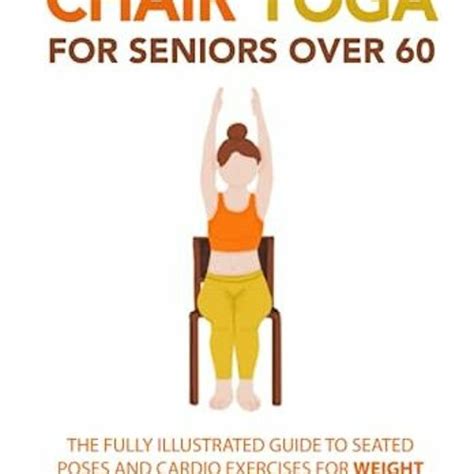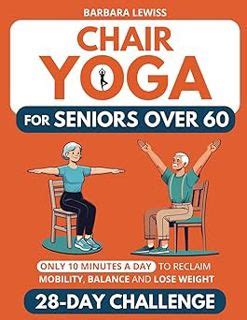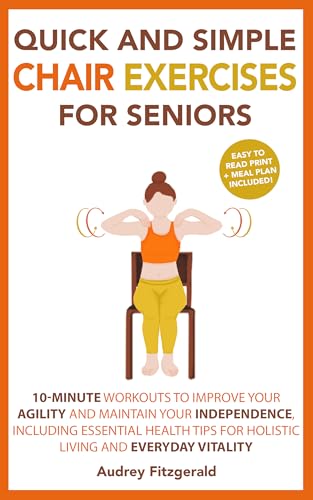Aging is a natural part of life, but how we age can significantly impact our quality of life. Embracing healthy habits and making mindful choices can boost vitality and ensure well-being as the years go by. In this article, we explore essential tips for healthy aging, from the importance of regular physical activity and a balanced diet to staying mentally active, managing stress, and maintaining strong social connections. By focusing on these key areas, you can enhance your overall health, adapt to the changes of aging, and enjoy a vibrant, fulfilling life well into your later years.
Join tirfblog.com as we delve deeper into this topic.
1. Importance of regular physical activity
Regular physical activity is essential for healthy aging, contributing significantly to both physical and mental well-being. As we age, our bodies naturally undergo changes in muscle mass, bone density, and flexibility, which can impact mobility and overall strength. Consistent exercise helps to mitigate these changes, maintaining strong muscles, flexible joints, and resilient bones.
Exercise is a boon to cardiovascular health, improving circulation, lowering blood pressure, and reducing the risk of heart disease. Furthermore, staying active aids in weight management, which is crucial for preventing obesity-related conditions, such as diabetes and certain cancers.
Beyond the physical benefits, regular activity has profound effects on mental health. Exercise has been shown to reduce symptoms of anxiety and depression, boost mood, and enhance cognitive function. It also contributes to better sleep quality, which is vital for overall health and recovery.
Incorporating a variety of exercises, including aerobic activities like walking or swimming, strength training, and flexibility exercises like yoga, ensures a well-rounded approach to fitness. Even moderate activities, such as gardening or dancing, can make a significant difference. By making physical activity a regular part of your routine, you can maintain vitality, improve quality of life, and increase the chances of aging gracefully and healthily.

2. Balanced and nutritious diet
A balanced and nutritious diet is essential for healthy aging, providing the body with the necessary nutrients to maintain energy, support immune function, and prevent chronic diseases. As we age, our nutritional needs change, making it crucial to focus on a diet rich in fruits, vegetables, whole grains, lean proteins, and healthy fats.
Consuming a variety of colorful fruits and vegetables ensures an intake of vital vitamins, minerals, and antioxidants that protect against cell damage and inflammation. Whole grains like oats, brown rice, and quinoa provide fiber, aiding digestion and promoting heart health. Lean proteins, such as fish, poultry, beans, and nuts, support muscle maintenance and repair.
Healthy fats from sources like avocados, nuts, seeds, and olive oil are important for brain health and reducing the risk of heart disease. Staying hydrated is also key, as it helps maintain energy levels, supports digestion, and keeps skin healthy.

3. Staying mentally active and engaged
As we age, staying mentally active and engaged is crucial for safeguarding cognitive function and overall well-being. Stimulating the brain through diverse activities can help delay cognitive decline and enhance memory, problem-solving abilities, and mental sharpness. Activities such as reading, puzzles, acquiring new skills, or playing musical instruments provide a mental workout, fostering a resilient and sharp mind.
Social interaction is crucial for mental engagement. Participating in group activities, joining clubs, or volunteering offers mental stimulation and combats feelings of loneliness and isolation, which are associated with cognitive decline. Moreover, staying curious and embracing new experiences, such as traveling or taking up a new hobby, can improve mental flexibility and emotional well-being.
Nurturing your mind through ongoing learning, social engagement, and embracing new challenges can significantly contribute to your mental well-being. This approach fosters cognitive longevity, enabling you to live a more fulfilling and active life as you age.

4. Quality sleep and its role in aging
Sleep is paramount to healthy aging, impacting both physical and mental well-being. As we get older, our sleep patterns naturally shift, making it more challenging to fall asleep, stay asleep, and experience deep, restorative rest. Despite these changes, adequate and high-quality sleep remains vital for overall health and vitality throughout life.
Sleep is crucial for our health and well-being. While we sleep, our bodies engage in vital processes such as cell repair, memory consolidation, and hormone regulation. However, inadequate sleep can have serious consequences. It weakens the immune system, increasing the risk of developing chronic conditions like heart disease and diabetes. Moreover, poor sleep impairs cognitive function and negatively impacts mood, leading to irritability, anxiety, and even depression.
For better sleep, consistency is key. Establish a regular sleep schedule, create a relaxing sleep environment, and avoid screens and stimulating activities before bed. Relaxation techniques like meditation or deep breathing can also be beneficial. Prioritizing good sleep habits supports the body’s natural repair processes, improves cognitive health, and contributes to a vibrant and healthy aging experience.
5. Managing stress effectively
Managing stress effectively is crucial for healthy aging, as chronic stress can have substantial negative consequences for both physical and mental well-being. Sustained periods of stress elevate the risk of developing conditions like heart disease, hypertension, and a compromised immune system. Moreover, it can contribute to anxiety, depression, and a decline in cognitive function.
Managing stress effectively requires identifying its sources and devising coping mechanisms. Techniques like mindfulness meditation, deep breathing exercises, and yoga can effectively calm the mind and reduce stress levels. Additionally, regular physical activity is crucial for stress management, as it releases endorphins, the body’s natural stress relievers, and contributes to improved mood.
Maintaining strong social connections is another effective way to manage stress. Spending time with loved ones, participating in community activities, or seeking support from friends and family can provide a sense of belonging and reduce feelings of isolation. Additionally, hobbies and creative activities can serve as valuable outlets for stress relief, allowing you to focus on enjoyable and fulfilling pursuits.
By proactively managing stress through these methods, you can protect your mental and physical health, enhance your resilience to life’s challenges, and maintain a positive outlook, all of which contribute to a healthier, more balanced approach to aging.
6. Social connections and community involvement
Social connections and community involvement are essential for healthy aging, providing significant benefits for both mental and physical well-being. Engaging with others cultivates a sense of belonging, combats feelings of isolation, and offers emotional support, all of which contribute to a positive outlook on life.
Strong social ties have been proven to reduce the likelihood of experiencing depression, anxiety, and cognitive decline. Maintaining connections with friends, family, and community members encourages physical activity, mental stimulation, and improved overall well-being. Engaging in group activities, such as volunteering, joining clubs, or attending social events, provides opportunities to build and strengthen relationships while fostering a sense of purpose and fulfillment.
Community involvement offers a rich environment for continuous learning and personal growth. By exposing individuals to a wide range of perspectives and experiences, it fosters mental acuity and engagement. Moreover, these interactions cultivate empathy and understanding, enriching our lives and broadening our horizons.
Nurturing social connections and actively participating in community life can create a supportive network that enhances your resilience, boosts mental and emotional health, and contributes to a more vibrant and fulfilling aging experience. Engaging with others not only enriches your life, but also helps you maintain a strong, positive sense of self as you age.
7. Regular health check-ups and screenings
As we age, regular health check-ups and screenings become crucial for maintaining our well-being. These proactive measures allow for early detection of potential health problems, enabling prompt intervention and management. Routine check-ups offer the chance to monitor vital signs, assess overall health, and discuss any new symptoms or concerns with a healthcare professional.
Regular screenings for common age-related conditions are essential for early detection and prevention. These screenings include checks for high blood pressure, diabetes, cholesterol levels, and certain cancers. In addition, regular dental and eye exams are vital for maintaining overall health and addressing any potential issues before they worsen.
Staying up-to-date with recommended screenings and health check-ups offers numerous benefits. By proactively monitoring your health, you can effectively manage chronic conditions, minimize the risk of serious health issues, and enjoy a higher quality of life. These preventive measures provide valuable insights into your health status, empowering you to make informed decisions about your care. Ultimately, this leads to a healthier, more active lifestyle as you age.
8. Hydration and its impact on vitality
Staying hydrated is critical for maintaining energy and good health throughout life. Drinking enough water is essential for many bodily functions, such as regulating temperature, keeping joints lubricated, and supporting digestion. As we age, our bodies become less efficient at retaining water, making adequate hydration even more vital.
Proper hydration helps to keep the skin elastic and youthful, aids in the prevention of urinary tract infections, and supports cognitive function by improving concentration and memory. It also plays a key role in maintaining cardiovascular health by helping to regulate blood pressure and ensuring efficient nutrient transport throughout the body.
The sensation of thirst may diminish with age, so it is important to be proactive about fluid intake. Aim to drink water consistently throughout the day, and include other hydrating beverages and foods, such as herbal teas, fruits, and vegetables, in your diet. Monitoring urine color can also be a helpful indicator of hydration levels—light, pale yellow typically signifies adequate hydration.
By prioritizing hydration, you can support your body’s essential functions, enhance energy levels, and maintain overall vitality, contributing to a healthier and more active aging process.
9. Adapting lifestyle habits for mobility and flexibility
Adapting lifestyle habits to enhance mobility and flexibility is crucial for healthy aging. As we age, maintaining and improving physical function becomes increasingly important to ensure independence and quality of life. Regular physical activity, including stretching and strength training exercises, helps preserve muscle mass, joint flexibility, and balance, which are vital for preventing falls and injuries.
Incorporate activities like yoga, tai chi, or gentle stretching routines into your daily life to improve flexibility and maintain joint health. These exercises can enhance range of motion, reduce stiffness, and promote overall mobility. Strength training, using resistance bands or light weights, helps build and maintain muscle strength, which supports better stability and function.
Additionally, making adjustments to your living environment can further support mobility. Installing grab bars in bathrooms, using assistive devices, and ensuring that walkways are clear of obstacles can help prevent accidents and make daily activities easier.
By proactively adapting lifestyle habits to focus on mobility and flexibility, you can improve your physical function, enhance daily comfort, and maintain an active, fulfilling lifestyle as you age.
10. Avoiding harmful habits like smoking and excessive alcohol consumption
Avoiding harmful habits such as smoking and excessive alcohol consumption is crucial for healthy aging and overall well-being. Smoking has well-documented negative effects on health, including increasing the risk of chronic diseases such as heart disease, stroke, and various cancers. It also accelerates the aging of the skin and impairs lung function, which can significantly impact quality of life and physical vitality.
Excessive alcohol consumption can lead to numerous health issues, including liver disease, cardiovascular problems, and impaired cognitive function. It can also disrupt sleep patterns and contribute to poor nutritional choices, further compromising overall health. Moderation is key, and limiting alcohol intake to moderate levels, as defined by health guidelines, helps mitigate these risks.
Choosing to abstain from smoking and consume alcohol in moderation can dramatically lower your chances of developing serious health issues. This, in turn, promotes both physical and mental well-being, allowing you to enjoy a more vibrant and active aging experience. These positive lifestyle choices contribute to maintaining better health and a higher quality of life as you age.
Incorporating these essential tips for healthy aging can profoundly impact your overall well-being and vitality. By embracing regular physical activity, maintaining a balanced diet, staying mentally engaged, prioritizing quality sleep, and managing stress, you lay the foundation for a healthier, more fulfilling life. Social connections, routine health check-ups, adequate hydration, and adapting lifestyle habits further support a vibrant aging process. Avoiding harmful habits like smoking and excessive alcohol consumption enhances these benefits. Committing to these practices will help you age gracefully and enjoy a higher quality of life throughout your later years.
tirfblog.com

